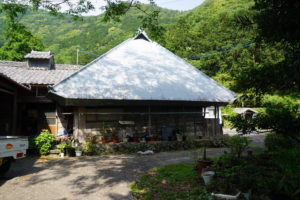Japan’s Evolving Housing Landscape: Key Insights for 2030, 2040, and Beyond
1. Why Vacant Homes Are Expected to Surge
One of the central themes in the referenced video is the anticipated increase in vacant properties (akiya) over the next 10 to 20 years. To understand why, it helps to look at Japan’s demographics and family inheritance practices:
- Aging Population: As many baby boomers and older homeowners pass away in the coming decade, they will leave behind residences that younger heirs may not occupy.
- Declining Birth Rate: With fewer children being born, the pool of potential future occupants shrinks.
- Urban vs. Suburban Dynamics: While central Tokyo remains in demand, many suburbs or regional towns are losing population.
2. The Possible Decline (or Transformation) of 30-Year Mortgages
Traditionally, Japanese families have viewed a 30- to 35-year mortgage as the norm. However, this could be changing:
- Price Reductions may reduce the need for large loans.
- Evolving Lifestyles encourage flexibility over fixed commitments.
- Risk-Averse Mentalities could limit appetite for long-term debt.
3. From “Minutes to the Office” to “Lifestyle First”
Tokyo’s housing values have long prioritized location. But a shift is happening:
- Remote Work is loosening commuter constraints.
- Quality of Life is now a key buying factor.
- Lifestyle Alignment with evolving job markets is increasingly important.

4. Tower Condominiums: Prestige or Bubble?
High-rise condos are prestigious but carry risks:
- Yield vs. Valuation gaps may widen.
- Interest Rate Sensitivity threatens luxury demand.
- Resale Risks increase without fresh buyer inflows.
5. Suburban Renaissance: Real or Rhetoric?
The suburban revival may bring opportunities:
- Improved Transit strengthens links to the core.
- Local Incentives support buyers and renovators.
- Lifestyle Appeal attracts hybrid workers.
6. Takeaways for Overseas Investors
- Understand Micro-Markets within Tokyo.
- Monitor Financing Conditions and rate policies.
- Plan for Exit Strategy on older or rural properties.
- Distinguish Trophy from Value in premium listings.

7. Broader Social and Cultural Shifts
- Work Culture is transforming with hybrid models.
- Family Structures influence inheritance behavior.
- Urban Planning is embracing mixed-use and identity-focused design.
8. Toward 2040: A Speculative Yet Visionary Outlook
- Mortgage-Free Ownership could become common.
- Housing Diversity will drive new property formats.
- Oversupply Challenges may force local policy reforms.
9. Strategic Advice for Investors and Buyers
- Deep Research is essential for smart acquisitions.
- Long-Term Fit outweighs short-term arbitrage.
- Leverage Incentives from local authorities.
- Scrutinize Project Management beyond brand value.

10. Yamamoto’s Personal Perspective: A Nuanced View on Tokyo’s Prime Real Estate
As the founder of Yamamoto Property Advisory, I believe that property prices in Tokyo’s central three wards—Minato, Chuo, and Shibuya—still have growth potential. New condo supply remains extremely limited, and the market is shifting toward high-quality resale.
In contrast, suburban markets may stabilize or decline. The Bank of Japan’s recent rate hike—the first in over 30 years—could impact pricing, especially if further hikes follow to counter rising inflation.
Meanwhile, foreign investor interest remains strong, particularly for trophy properties. Chinese investors should be monitored closely due to their high price sensitivity, which could amplify downside risk during market corrections.
In conclusion, I remain cautiously optimistic for core Tokyo real estate but urge all investors to remain attuned to macro trends, rate policy, and regional dynamics.
Above is an independent English summary and extended commentary inspired by a Japanese YouTube program (https://youtu.be/cIlbTQbfqvc?si=6hYSb_TGE57cj9j-).
This post is neither a transcript nor a strict translation, but rather a detailed restatement plus added context to help readers—especially those from overseas—understand key viewpoints about where Japan’s housing market may be headed by 2030 and beyond. All core insights derive from the panel discussion in the original video.

Reference
Original Japanese YouTube Video (Japanese language): https://youtu.be/cIlbTQbfqvc?si=6hYSb_TGE57cj9j-
(All major points in this expanded summary stem from the conversations in that program.)
Disclaimer: This text reflects an independent summary and interpretive commentary. It does not represent an official transcript or exact translation of any part of the video. For precise wording, details, or further context, please refer to the original broadcast or seek professional real estate advice tailored to your specific interests.
#TokyoRealEstate
#JapanProperty
#RealEstateInvestment
#LuxuryRealEstate
#PropertyMarket
#GlobalInvesting
#AsianPropertyMarket
Toshihiko Yamamoto is the founder and principal broker of Yamamoto Property Advisory,
a distinguished real estate brokerage in Tokyo that specializes in luxury residential and investment properties for an international clientele.
His firm caters to discerning investors seeking premier properties for personal use and income-generating whole buildings for investment purposes.
A licensed realestate broker in Japan, Mr. Yamamotoholds an MBA from Bond University in Australia
and a Certified Commercial Investment Member (CCIM) designation from the CCIM Institute in the United States.
His extensive international experience, having lived abroad in Australia and the United Kingdom, equips him
with a nuanced understanding of global real estate trends and the unique needs of foreign investors.
With over two decades of experience in international business, Mr. Yamamoto has successfully conducted business with clients from more than 20 countries.
As a seasoned property investor himself, he provides informed guidance to his clients as they navigate the intricacies
of the Japanese real estate market to secure optimal investments.
Discover more in his book, “The Savvy Foreign Investor’s Guide to Japanese Properties: How to Expertly Buy, Manage,
and Sell Real Estate in Japan,” available on Amazon, iBooks, and Google Play.
Connect with us through social media on Instagram, WhatsApp, and LINE for further information and expert assistance.



About the book
Amazon.com Link



